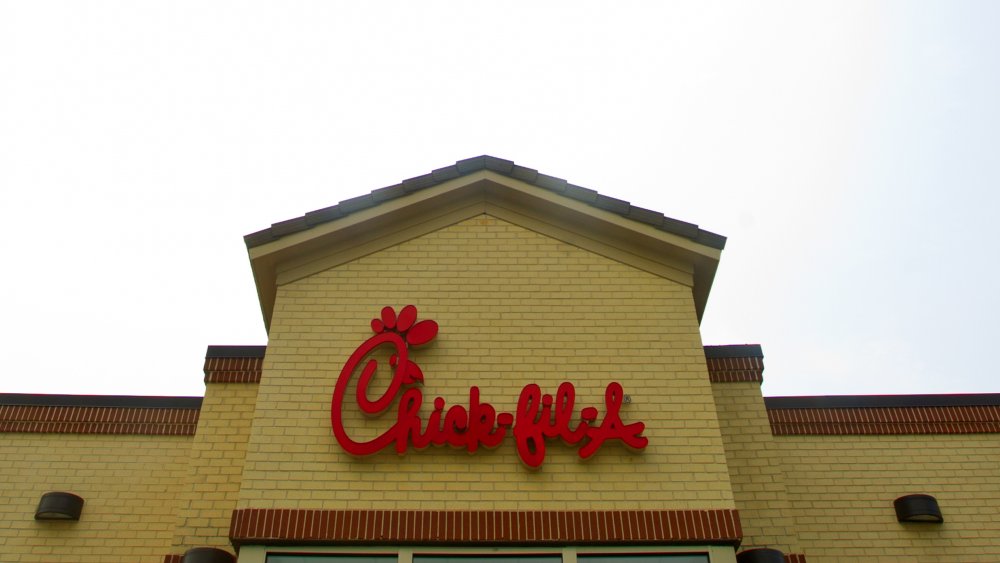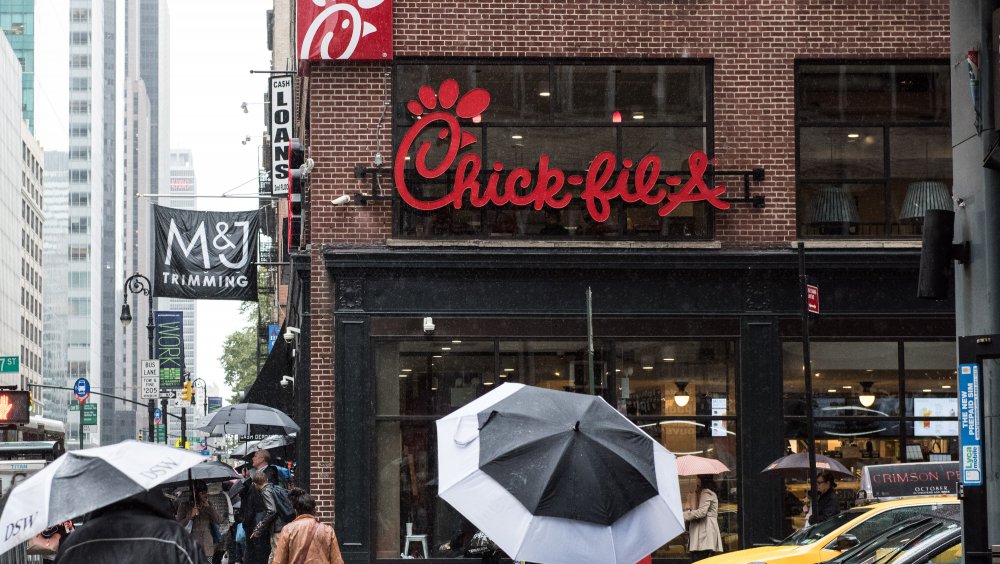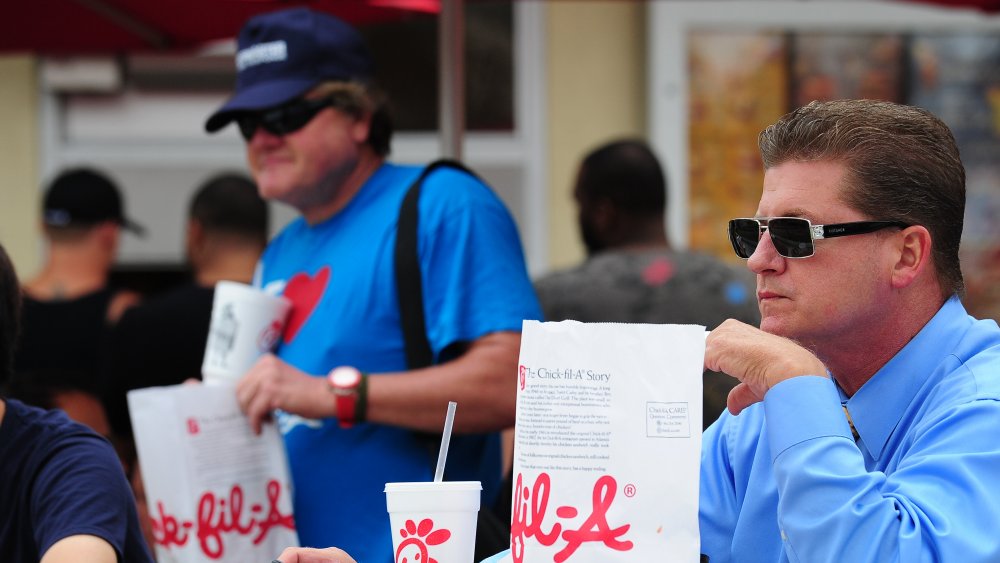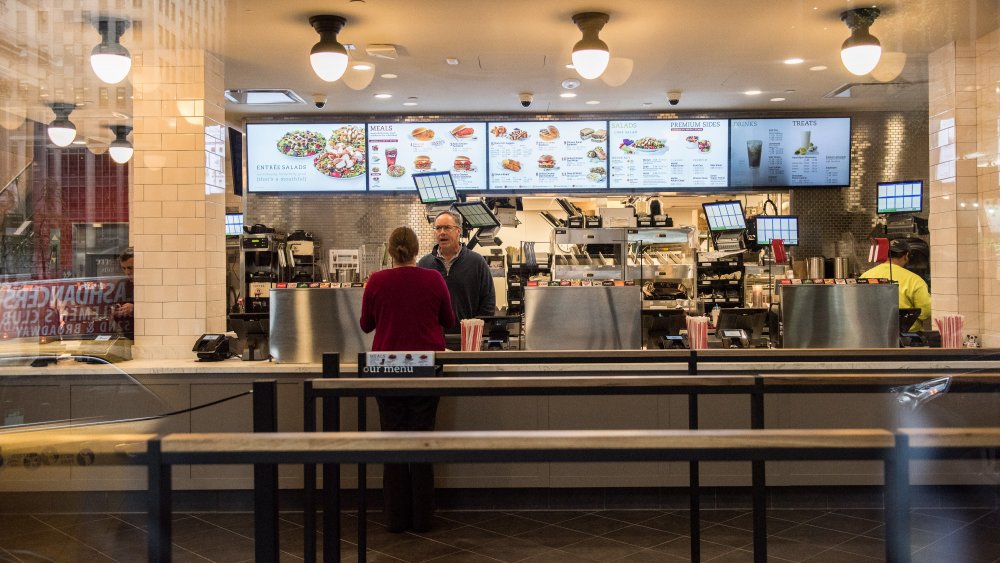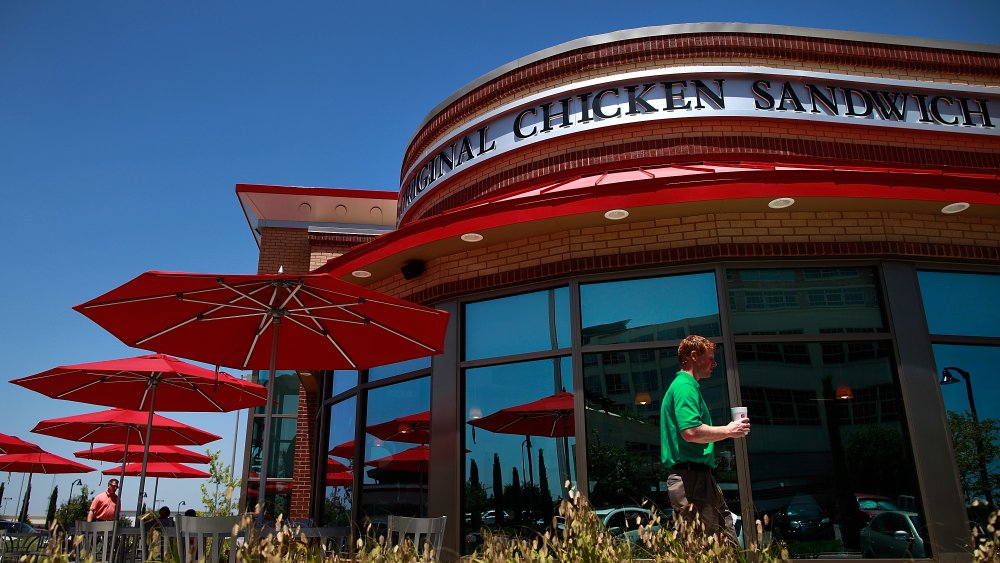How Much Chick-Fil-A Franchise Owners Really Make Per Year
Even with the success of the chicken sandwich, Popeyes still doesn't have Chick-fil-A beat when it comes to America's most favorite fast food chain. Not even McDonald's can seem to touch Chick-fil-A in the brand satisfaction and customer loyalty category, according to QSR Magazine. When one considers just how popular the chicken chain is with American consumers, operating one of their franchises seems like it would be a pretty lucrative business endeavor.
Owning a Chick-fil-A franchise comes with some different stipulations than the other fast food chains out there, however. Then again, part of what has made Chick-fil-A so successful is also what separates them from their competitors. For those who do manage to open a Chick-fil-A franchise — and getting one isn't easy — the income is very good.
Chick-fil-A operators make a really good income
As for how much a Chick-fil-A franchisee — excuse us, the company calls them "operators" — makes a year, well, that obviously can vary depending on the store. According to a Forbes article, in 2007, a single-store operator took home an average salary of $100,000. That's by no means bad, but 2007 was over a decade ago and Chick-fil-A's popularity has only grown since then.
Most fast food companies don't make it widely known just how much their franchise owners earn a year, but that doesn't mean it's not possible to get a pretty good idea. According to the franchise information group, Franchise City, a Chick-fil-A operator today can expect to earn an average of around $200,000 a year. This calculation is based on the average restaurant's earnings and the percent gross that operators take (via Washington Post). The chicken business pays pretty well, but the tough part is actually getting the business.
Chick-fil-A only approves a small percentage of franchise applications
Given how popular Chick-fil-A's chicken has become, it's no surprise that their franchisees are making bank. Getting to the point where Chick-fil-A hands over the keys to one of their restaurants is no easy task, though.
"The barrier to entry for being a franchisee is never going to be money," Chick-fil-A spokesperson Amanda Hannah told Business Insider. The company is pretty picky about who they allow to run their restaurants, and looks at an applicant's involvement within the community with a fine-toothed comb. To put into perspective just how few people make the cut, every year Chick-fil-A gets around 20,000 inquiries about opening a franchise, but Hannah said only between 75 and 80 are selected.
Those aren't good odds, but getting a Chick-fil-A franchise is going to be a lot cheaper than just about any other fast food joint.
It's the cheapest fast food franchise to buy
Compared to other franchises, such as McDonald's, which asks for a $45,000 startup fee and liquid assets of $500,000, Chick-fil-A's $10,000 fee is a real bargain (via The Chicken Wire). In fact, it's actually the cheapest fast food franchise a person can buy and only costs around 10 grand up front. That's a real steal compared to the $30,00 average fast food franchise startup fee (via The Hustle). For the curious, the next cheapest is Subway and Church's chicken at around $15,000 each.
Just because Chick-fil-A has the lowest startup fee, that doesn't necessarily make them the best deal for investors. Whereas most fast food restaurants take a royalty fee of between 4 to 8 percent of monthly sales, Chick-fil-A takes 15 percent — almost double that of every major fast food franchise! Ouch.
Chick-fil-A wants to make sure they get their investment back
So what's up with this enormously high royalty fee that operators must pay out to their chicken boss every month? Well, it's pretty simple really. If you want to open a McDonald's or Taco Bell, it's on you — the investor — to foot the bill for the real estate, building materials, and so forth. This is why most fast food franchises require potential franchise owners to have so much in liquid assets. They don't want the franchise buyer to run out of money before the fry machine even gets plugged in.
Chick-fil-A, on the other hand, covers those hundreds of thousands of dollars that it costs to get a fast food restaurant up and running. Depending on where the new Chick-fil-A restaurant is located, those costs can soar to $2 million. You gotta sell a lot of nuggets and sandwiches to get that money back — hence the high royalty fee, plus 50 percent of any profit.
Just like Five Guys and McDonald's, Chick-fil-A has its own requirements for operators, but on the plus side, operators do get Sundays off.
